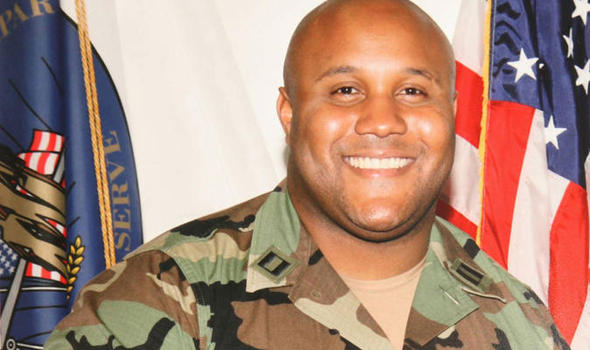I've been saved. I've been blessed. Now I'm being healed.

By Verne Strickland 021613
First published March 5, 2012
My walk with cancer began when I found that I was actually losing the ability to walk. Pain froze my hips, hobbled my legs, and forced me to shuffle along, barely lifting my feet. I was suddenly old and infirm. I looked it.
I turned 75 in 2012, but have enjoyed very good health most of my life. I've tried to watch my diet to curb cholesterol. I do light weight training, and stay off the smokes, which I quit over thirty years ago.
But then this "thing" happened. I had to curtail all my activities. I was grounded. My energy plummeted. I had no appetite, and my weight dropped markedly. Before I knew it, I was down to within five pounds of what I scaled in at when I was in boot camp at Fort Jackson fifty years ago.
I dropped out of sight. I could not function. Early onset of Alzheimer's worsened, and I was often confused and inarticulate. I couldn't think. To my family the change was evident, and alarming. We were all concerned. I didn't announce to friends until later what was going on. At the time, I didn't know.
Foolishly, I cut down on and then stopped altogether the dozen or more prescription medicines which glued me together, regulating my heart, breathing, digestive and circulatory systems, and my brain. As a result, I crashed, and dove into a depression so deep I didn't think I would get out. I questioned how long I could tolerate it. It was a desperate time.
I didn't know I would talk about this, but it's a part of the story. I entered a recommended mental rehab facility, which helped me get emotionally stable again. I needed that. While there for a brief period, I lived with unfortunates more desperately ill than I.
There is no shame in this for me. Quite the contrary. It was a priceless and touching opportunity to see the other side. Even to be on the other side for a time. It broadened my horizons. I can even liken the experience in a way to the crushing emotional burden and depression that many combat veterans feel, although to liken my own sickness to theirs would be disrespectful.
My fleeting passage through that dark world fed the kinship I feel with our soldiers and Marines like my dear friend Ilario Pantano, whose campaign I took pride in supporting. He has talked about the horrors of PTSD, which has beset so many veterans, and talks frankly about his own bout with these demons. I think perhaps I may understand that a bit better now.
It was a profound experience. We had nothing but the staff and each other. They helped me. I helped them. They were all good people with bad problems. I'm sure many of them are still there. I will never forget them.
With that fixed, I undertook the next step -- to find out what was physically wrong with me. We had only begun our search. My loving, caring family gathered around me. This was so important. We prayed for direction, courage and resolve. It all came, of course. Faith is wonderful when you have it, and a lifesaver when you need it.
We gave God the reins of our lives. He guided us to the man who took charge of our medical dilemma -- Dr. William McNulty, a board-certified Wilmington oncologist and internist of national reputation, a brilliant and cheerful physician who changed my life and gave me a new sense of hope. He is a founding partner of Cape Fear Cancer Specialists in Wilmington
I surrendered myself to a procession of tests and probes -- bone biopsies, CT scans, MRIs, countless blood tests. The problems seemed to have originated in my pelvic structure, which seemed reasonable, because my ability to walk had been most seriously compromised.
Dr. McNulty early on suspected multiple myeloma, a type of cancer which starts in plasma cells. It's the most common type of plasma cell cancer -- intimidating, but treatable with what my oncologist described as "modern medicine" -- radiation, and creative chemotherapy -- utilizing an "old" drug enjoying a resurgence in popularity due to new creative techniques in IV usage. In my case it had attacked bone tissues -- primarily in my hips. It can metastasize if not properly diagnosed and promptly treated.
First came radiation therapy, which most often refers to external beam radiation therapy. During this type of radiation, the high-energy beams come from a machine outside of your body that aims the beams at a precise point on your body.
Radiation therapy damages cells by destroying the genetic material that controls how cells grow and divide. While both healthy and cancerous cells are damaged by radiation therapy, the goal of radiation therapy is to destroy as few normal, healthy cells as possible.
This critical role in my treatment was undertaken by Board-Certified Radiation Oncologist Dr. Michael Papagikos at Coastal Carolina Radiation Oncology Center in Wilmington. He is one of the most knowledgeable, caring and inspiring physicians I have ever met.
Dr. Papagikos says: "My goal is to treat my patients with technologically advanced radiation therapy in an expert, compassionate, and respectful manner with the goal of improving and extending their life."
It was after several weeks of intensive radiation treatment that I entered the unique world of chemotherapy with Dr. McNulty at Cape Fear Cancer Specialists.
This is where we'll go next in this special medical series on USA DOT COM --
I've been saved. I've been blessed. And now I'm being healed.







 Subscribe to feed
Subscribe to feed
